
DEATH WISH
by
Mary McCluskey
Helen stands at the kitchen window, perfectly still, listening. Yes. It is his car. The garage door whines, and there is a hard slam as he kicks the hall door with his heel. But the window does not vibrate as it sometimes does. He is not in an angry mood, then. He has not had a bad day.
The kitchen knife tight in her fist, Helen slices though the beef. The red flesh opens, oozing blood that seeps onto the cutting board. She uses the shorter knife for the garlic and cuts so sharply through the clove that the knife leaves a wound in the wood. She has peeled four garlic cloves, blindly following the recipe. Too many. He hates garlic. Her fingers rigid with resentment, she pushes two of the cloves into the waste disposal.
But she is ready: the furniture gleams with a mahogany polish, the rug is shaken and lies, immaculate as a shroud, on the living room floor. All afternoon she has stepped around it, so as not to dent the pile. There is nothing for him to criticise today.
"Dad? You're early. How nice."
He peers over her shoulder. His breath is stale with beer from lunch and something that smells like tuna.
"What you cooking?"
"Stroganoff. Had some beef in the freezer."
"Better be lean," he says. "How's the new stove?"
Just a week old from the Argos catalogue, with a double oven and an electronic top like a computer circuit. Helen's birthday gift.
"Wonderful," she says. "Bit complicated but I love it."
"Easy with that garlic."
"There's only a taste."
She watches him at dinner from under her lashes; he's looking beyond her to the television set where Tony Blair's strained smile is briefly visible and the talk is of famine in distant lands. Her father's bridge denture makes a slap, slap sound. Scientifically, it is impossible that the sound of his denture is louder than the television. She knows this. But it sounds louder, and booms in her ears. Slap, slap, swallow. Slap, slap. He pushes his plate away, half of the meal untouched.
"Too much bloody garlic," he says. "When will you learn? You know I can't eat this shit."
"I'm sorry. Didn't seem much."
She hears his next words in her head, seconds before he says them.
"Your mother never used garlic. Never."
"I know. Sorry."
"You got something else?"
As she stands to clear away, he leans to her left, trying to see the television. The plates clash in her hands.
"Careful," he warns.
Helen gives a small smile of apology.
ooo
That night in her bedroom, decorated in the pink and white chintz her mother picked out years ago, Helen stares, as she has every night for the last seven years, at her mother's rose garden. A warm wind from the south bends the branches of the willow. She can hear a dog barking somewhere across the canyon, miles away towards the town. It is an unsettling sound.
Seven years since she picked roses from the garden to take to the funeral. She remembers that they chose the solid oak coffin in a room with eerie light, a room like a ballroom. Her father striding behind her, inspecting each floating white tag that showed the price. The funeral director at her elbow whispering take your time, take your time, because she was breathless and had wanted only to run through the place like a phantom herself.
She had cared for her mother through two years of pain, morphine, oxygen and the insidious smell of disinfectant. The smell lingers still. It will never go away.
"Don't need a nurse," her father told the social worker. "Helen lives at home."
She had planned to move out that year. Move closer to the job she had found in the library. When it was over, after the funeral, she was too exhausted to argue with him when he told her that her working would be just plain stupid.
"What you need a job for?" he had asked.
"Somebody's gotta cook. Take care of the house."
Then added, as if it were an endearment: just the two of us now.
She hears him banging around in his bedroom.
The walls are so thin she hears every breath, every snore, his scratching, his hawking cough. She flinches, always, at the long splashy urination, his straining defecation. Sometimes the bed creaks in a familiar rhythmic way and she hears his panting breath, as he masturbates, his voice, here you go, here you go and a final grunt of relief.
And clearer in her mind each day is the thought that she would like to kill him.
ooo
He plays golf on Saturdays. He leaves early and when she hears the car, Helen sits up in bed, waiting for the sound to fade. She has a ritual: each Saturday she switches on his laptop computer and looks at towns and villages where she might live. She studies homes, rentals, jobs. She imagines packing a carton with the crystal her mother never used. Her own place. Pictures on the wall. Books on the shelves. A view of hills, or fields, or the ocean. Oh, imagine the ocean.
Then she waits for his return as the coil of hot anger in her gut begins to burn again. She has thirty pounds in her purse.
After dinner that night he falls asleep in the recliner. Golf always exhausts him. A faint line of drool shows on the corner of his open mouth. She stands by his chair, studying his stranger's face. If she were to pour some caustic substance into his open mouth, would he swallow? Or spit? It would not kill him. No. Though it would sear his throat at least, silence that ever-vigilant critical voice. She disappoints him, he tells her; she's not the daughter he wanted.
"Why don't you look like your mother?" he asked her once, as if it were her fault that she had not inherited her mother's tiny stature and blonde curls.
She had stared at him, amazed at the question.
"Because I look like you."
"Been better if you'd been a boy," he said.
Later, she had stared at herself in the mirror, trying to assess her grey eyes, the brown, straight hair, the strong cheek bones. Her face appeared rather wide and square, but it did not look to her like an ugly face. Why does he think so?
Now, she holds the cushion in both hands and moves closer. If she were to press it hard over his face? No. He would wake, wrestle it away. He is physically stronger, of course he is. He is a man. An old man with drool on his chin, but a man nevertheless. She needs a weapon.
In the garage there is an ax, for wood in the winter. She imagines its firm heft in her hand. One hard swing, one brutal down stroke. Slam it into his head. Sever it. Like splitting wood. His skull would open, brains and blood spill out. It would smell warm, sweet. The thought makes her pulse race, and strangely, her mouth water. No. Not that.
A knife then. Straight through the heart while he naps. One thrust. Then blood would spurt, high, a red arc. An artery. A fountain of blood.
She turns away, but the image of that bloody fountain remains.
Helen knows she is losing control. Her mind seethes with anger she cannot batten down. She can no longer control her thoughts. Soon, she fears, she will no longer be able to control her actions. Just die! her mind screams each time she glances at him. To poison him would be simplest. She should research it. How difficult can it be?
She stares at the back of his neck when he shaves on Monday and wonders if a hard blow could break it. She thinks about brake linings on his old Jaguar, of the Oleander plant in the garden. If she had money, a car, she could drive away.
As she leaves the library at the tiny canyon school where she volunteers twice a week, a teacher's aide, Maritza, offers her a ride.
"It's okay. I'm just round the corner," says Helen.
"But it's so cold! Get in."
The Honda is warm, it smells of lavender air freshener.
"This is nice. Thank you."
"How can you live without a car up here?" asks Maritza. "So far from civilisation?"
The words echo. She had taken driving lessons years ago, but never taken the test. She was no good at driving, he said. He didn't trust her with a car. If she had an accident they'd been sued from here to hell and back.
"This your house?"
"Yes. Thanks for the ride."
Thank God he isn't home. She runs up the path. The house feels damp and chilly and she wishes she could put on the heating for just a minute. But he will be furious if it is on when he returns. He says it's wasteful to run it for one person, so he switches it on as he enters. Helen has hurried into the kitchen when his car sounds in the garage.
"What's up with you?" he asks. It sounds accusing.
She knows that her face is flushed, her hair uncombed.
"I'm fine," she says. "Fish for dinner. Won't take long."
He grunts as he settles down in the recliner.
"I need a car," she says impulsively, from the kitchen. "It's so cold to walk."
"Don't talk dumb. It's barely a mile. You're scared to drive, remember?"
"I can practise," Helen says.
He ignores her. She places the spatula down, and presses the electronic space that turns off the burner. The red light fades to black. She moves the fish away from the heat. Then she turns. Helen holds the heavy skillet in her hand. It is cast iron. It could crush a skull.
"Dinner's ready, dad," she says to the back of his head.
He eats the fish and the mashed potato slowly, poking the fish for bones. She calls to him as she slices pie.
"I'd really love a car," she says.
"For Christ's sake," he mutters, his eyes on the television screen. "We just had this conversation."
"Actually, I've been thinking," the words are out before she thinks, flying from her mouth like birds set free. "That I'd like to get my own place."
Her voice is loud. He must hear her. Very slowly he turns the recliner. It wheels around easily on her polished floor.
"What did you say?"
His frown, his hard straight mouth, but something in the eyes is different. It could be surprise.
"I'd like to get a real job. A place of my own."
He laughs.
"What? You've got the easiest fucking job in the world. Shit, how many women got a house like this? You want a boyfriend? Is that it?"
His laugh is harsh.
Helen thinks about this.
"Maybe I could have a boyfriend," she says slowly. "Even a husband eventually."
He is relaxed in the recliner, still smiling.
"Funny, Helen," he says. "Very funny. Take a look in the mirror, sweetheart. Shit, I thought you were serious."
"I am serious." She is amazed at how calm her voice sounds. How sure she is.
She can see the anger then, seeping up into his face from that deep well of fury that is just below the surface. The anger that would cause her mother to step back, fall silent. Helen stands quite still and stares back at him.
"You're over thirty years old, girl."
"Old enough to have my own life."
The line sounds rehearsed, though she has no memory of rehearsing it.
He stares now, puzzled.
"What is this?" he asks. "What started this shit?"
"Because recently I have been thinking," she says, and looks directly into his milky blue eyes, "that one day I might snap and kill you."
There is a second when a light seems to flash in his eyes.
"You're some kind of crazy, Helen," he says. "Some kind of crazy. Don't waste my time with this shit."
Then he swivels around in the recliner and turns back to the television.
In the bedroom Helen retrieves the pages she printed from the school computer. The names of these rodenticides are strange and melodic: bromadiolone, cholecalciferol, brodifacoum. She rolls them on her tongue. Says them aloud, so that the words echo in the room. Bromaliolone, cholecalciferol. So lyrical and lovely. They sound like poetry.
Internet orders delivered in four days. She looks at her calendar.
"Yes," she whispers. "Yes."
"Talking to yourself?"
Helen jumps, startled, even though his voice behind her is deceptively soft.
"Just checking out stuff for the garden."
"Just like your mother, she loved that garden."
His smile is slippery as he wets his upper lip with his tongue. The ice clinks in the glass in his hand. She can smell scotch.
"She wanted to go once," he adds. His eyes look glassy.
"Go?"
"Leave." He laughs. "Where would she go, timid little thing like her. Like a scared rabbit."
Helen stands, walks to the window. She can see her ashen face reflected through the window and framing it, her mother's rose garden, the painted wood trellis. He is a shadow behind her but she can hear his breathing.
"I think I'll have a bath," she says, edging past him.
She slams the bathroom door closed then stands with her back against it. She turns on the taps so forcefully that the water pounds against the porcelain. She is trembling. She waits until she hears the bedroom door close, the clink of ice in the kitchen, then splashes her face with cold water before she hurries, breathing fast, to the closet.
The old, plaid suitcase is high on the shelf, but Helen reaches it, stretching on tiptoe, pulling at it with determined hands.
She packs it silently, moving like a ghost from closet to bed, listening for his footsteps. A few clothes, books, the tiny antique clock her mother loved. When she lifts the suitcase finally, it is heavy. But it has wheels, she can push it.
She inches the door open and looks out, he is still sitting in front of the television set, legs stretched out, a scotch in his hand. He does not turn.
Helen moves on tiptoe, backing towards the garage door, lifting the suitcase high so the wheels will not squeak on the floor. The side door inside the garage sticks. She pulls it, and it makes a scrape, impossibly loud, then a whining sound. She is barely breathing. Her heart hammers.
When the door opens at last, air rushes in and she gasps quickly then hurries down the path, still holding the case in an awkward painful grip.
At the corner she drops the case to the ground, flexing her fingers. It is safe to pull it now, and she sets off, walking briskly down the hill, tugging it behind her. The air tastes clean, salt in it from the ocean five miles away, and the tall trees that flank the highway rustle in the breeze. There is no traffic, it is quiet but for a chorus of crickets in the undergrowth and a dog barking some distance away.
Helen decides to simply keep going downhill, until she reaches the town. She can get a cheap bed and breakfast, near the railway station. In the morning she will go to a social security office. It can't be impossible. Women must do it every day.
The sky is a dark canopy and a half moon the color of an oyster shell is visible through the trees. The breeze smells of the old eucalyptus that edge the road and the mountain thyme in the hedgerows.
Soon she feels warmer, so Helen opens the top buttons of her jacket and feels the air soft on her neck. She feels cooler now, lighter. As if she could lift her arms and just fly down the hill, soar on the breeze. Ride the wind like a hawk.
She imagines her father's puzzlement at the silence in the house in the morning, no coffee brewing, no bacon cooking on the new stove. He will wake and find the house empty. So empty. A moment's pity squeezes her heart, then it is gone.
She can see the lights of the town, now. It is not so far. The suitcase rolls easily, it feels lighter as it spins downhill. The little wheels rotate with a soft shushing sound.
� Mary McCluskey
Reproduced with permission
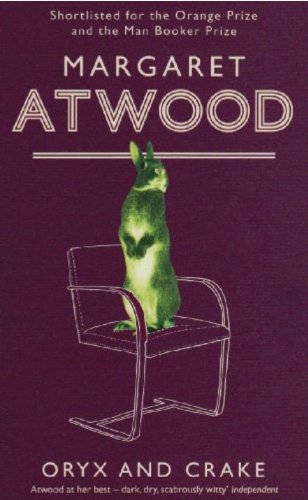 MARGARET ATWOOD
MARGARET ATWOOD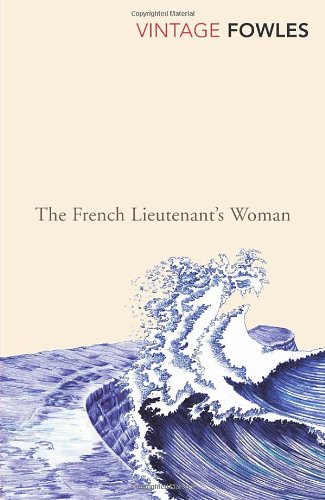 JOHN FOWLES
JOHN FOWLES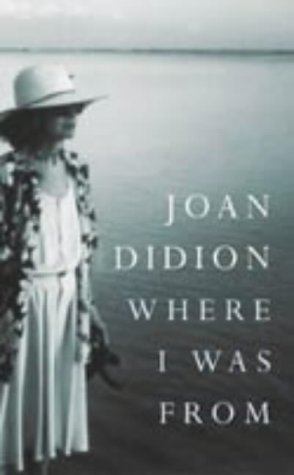 JOAN DIDION
JOAN DIDION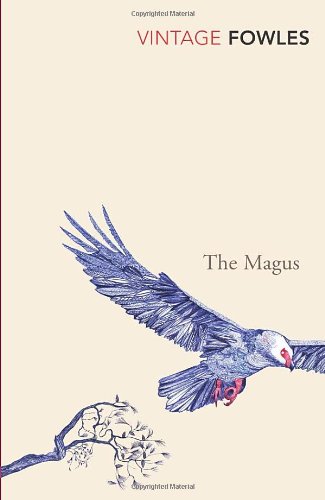 THE MAGUS - John Fowles
THE MAGUS - John Fowles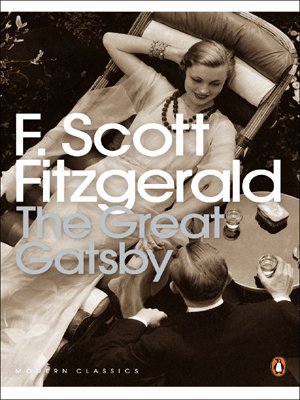 THE GREAT GATSBY - F. Scott Fitzgerald
THE GREAT GATSBY - F. Scott Fitzgerald CAT'S EYE - Margaret Atwood
CAT'S EYE - Margaret Atwood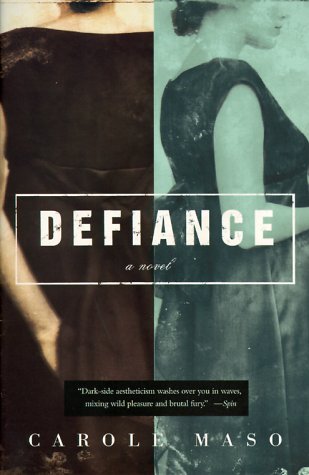 DEFIANCE - Carole Maso
DEFIANCE - Carole Maso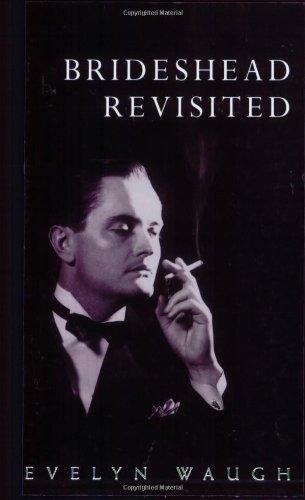 BRIDESHEAD REVISITED - Evelyn Waugh
BRIDESHEAD REVISITED - Evelyn Waugh
